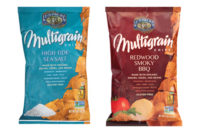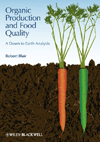Festida Foods chips away at consistent operations












Festida Foods, a Grand Rapids, Mich.-based private-label producer of corn chips and tortilla chips in a variety of shapes and sizes, has grown considerably since its start in 1989. Its new 155,000-sq.-ft. tortilla chip manufacturing plant is proof positive of its increasing success.
“Our promise is alive at Festida Foods,” says president Kyle Curtiss in regard to the company’s mission statement, which is prominently displayed in the lobby of the new plant. The statement reads “Our Promise—To honor God in all we do, to help people develop, to pursue excellence and to grow profitably.”
That’s how Festida approaches every day and every relationship, Curtiss says. “Festida considers both customer and vendor relationships as partnerships,” he explains. “Bringing value to those partnerships is a central focus of our business, and we can do that in many ways, with product and recipe development; an experienced staff with snack food backgrounds; a comprehensive lab facility; a certified baker and five full-time lab technicians; competitive pricing; and winning attitudes.”
The corn and tortilla chips are made from white, yellow and blue corn and specialty flours. Festida’s customers include national and regional brands, foodservice distributors, school systems, specialty retail and big box stores. The chips are also purchased as components for meal kits and as ingredients used by other food processors.
Space constraint challenges
But Festida’s success produced a challenging flip side. Soaring sales were squeezing the company out of its original plant in Cedar Springs, Mich. “We needed [more] space desperately,” recalls Curtiss. “For over a year, we were working six days a week, 24 hours a day. In this economy, that’s a blessing, but with it, we needed to make some changes.”
Relocating to a larger building in Grand Rapids enabled Festida to double its capacity, while providing additional room for future growth and better working conditions for employees.
Curtiss pushes Festida to strive for excellence in all areas of business, including its processes and technology. With the addition of a second processing line, Festida needed a new distribution, seasoning and packaging system that could handle the line’s output of 3,000 lb. of chips per hour.
“Our wide range of products required a system to move, season and pack a large number of chip sizes and weights,” explains Curtiss. So he contacted Heat and Control, which designed, built and installed a system for the line featuring technology that can consistently transport the chips and offers versatile and uniform seasoning application, as well as nonstop weighing and packaging efficiency.
Processing points
Festida produces bags from 1 oz. to 3 lb. at speeds from 12 to 90 bags per minute. After they’re made and cooked in the cooking room, which houses multiple processing lines, the chips briefly accumulate on two of Heat and Control’s SwitchBack in-line storage conveyors. The chips can be made available to the packaging department at this stage, in case there’s a temporary halt in production, and the chips never need to be “bulked-off” or wasted, should there be a brief packaging delay, when changing bagmaker film, Curtiss says.
The chips are then proportionally distributed to five seasoning/weighing/bagmaking stations by a dual-lane FastBack Revolution gate-conveyor system. Built into the pan of each FastBack horizontal motion conveyor is a patented Revolution gate that rotates to divert the exact amount of chips requested by each bagmaker, while maintaining a steady supply of chips to downstream stations. Revolution has no pinch-points that can break chips or injure workers and is completely sealed to prevent product cross contamination.
“With the addition of our second production line and multiple distribution channels, production flexibility has been significantly improved with the Revolution gate technology,” says Curtiss, adding that the system has helped improve order fulfillment.
The conveyor’s on-machine seasoning application system continuously measures product flow in the conveyor pans. This flow information is used to instantly regulate the amount of seasoning deposited onto the chips, providing accurate and even application without waste, according to Curtiss.
Gentle transport
“The state-of-the-art FastBack Revolution system treats chips gently, resulting in less breakage for our customers,” Curtiss observes. “This allows for a more uniform flow of product and a more efficient distribution of chips to the packaging machines.”
An integral part of the seasoning system that adds versatility are two Spray Dynamics/Heat and Control oil sprayers that were installed in the cook room. The sprayers reintroduce oil to the chips, so that the seasoning will adhere uniformly in certain applications.
“In addition to providing internal product flavorings, we apply different external seasonings, including salt, sea salt, cheese-based, savory flavors and more,” Curtiss points out. “The FastBack on-machine seasoning [applicator] provides enhanced coverage of salt, seasonings and flavors. It greatly reduces both cross contamination and cleanup time. Seasoning application rates are consistently accurate, and we can now produce up to four different products simultaneously.”
From the seasoners, the chips flow through new Ishida R-series multihead weighers, also provided by Heat and Control, and then flow into Ishida Atlas vertical form/fill/seal bagmakers. The vf/f/s bagmakers have built-in vacuum splice tables to simplify film changes, and their forming tubes can be interchanged with existing systems that were relocated from the old plant.
Curtiss says that overall packaging efficiency is also up, thanks to longer run times resulting from uninterrupted flow of the chips through the system. “The weighers and bagmakers are cutting-edge technology, and they provide accurate bag fill weights,” he says.
Chip breakage is also down. “One of the largest improvements to-date has been in order scheduling,” notes Curtiss. “We can produce four different products simultaneously. Certain products have better overall throughput, and there has been some reduction in waste thanks to our accumulation ability.”
The system is controlled by an icon-based, user-friendly control system via touchscreen. “We have easy access to various maintenance areas,” Curtiss explains. “The system design allows for easy sanitation and disassembly, which reduces cleanup time and provides the opportunity for more thorough and effective cleaning.”
What’s not to like? The benefits have helped Festida reach its productivity and quality goals. Festida was recently recognized as a Gold Standard manufacturer of tortilla chips by a large national brand. “Based on this achievement, our expectations of quality for all of our products have increased, resulting in better quality for all Festida customers,” Curtiss says with a smile.
Looking for a reprint of this article?
From high-res PDFs to custom plaques, order your copy today!













